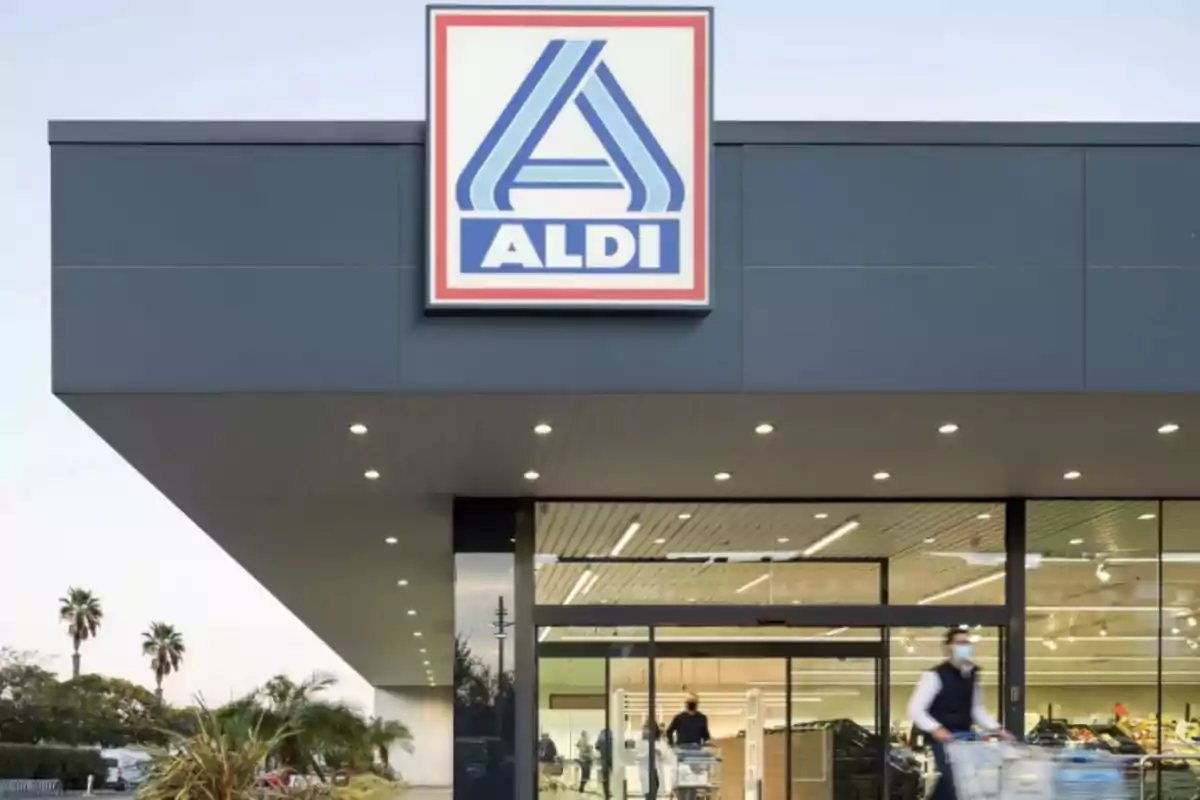
Aldi Follows in Costco and Walmart's Footsteps and Americans Won't Like It
The German Giant Confirms Bad News for Its Customers in the United States
Aldi has experienced an impressive rise in recent years in the United States. With a business model focused on simplicity, low prices, and quality products, the German supermarket chain has managed to win over millions of Americans. As the brand continues its expansion across the country, Trump-era tariffs may affect its pricing strategy.
How Do Tariffs Affect Aldi's Prices?
Bruno Sánchez, spokesperson for Aldi USA, explained in a recent interview how tariffs change the company's pricing structure. "Aldi's business model is based on efficiency and simplicity, and with the implementation of tariffs, there is pressure on our costs. Although we will try to minimize the impact on the final price for the customer, some categories could see moderate increases," Sánchez commented.

Domestic vs. Imported Products: 75% of Aldi's Offerings Are Local
Aldi already faces fierce competition in the market, but its strategy has focused on offering fresh, high-quality products at low prices. According to Sánchez, around 75% of the food Aldi offers in its U.S. stores comes from local production. Only 25% of the products are imported from countries where tariffs could have a direct impact on costs.
Tariffs: Price Increase on Imported Products?
"Items with components from countries subject to new tariffs could experience increases in supply chain costs," Sánchez explained. However, Aldi has a global sourcing team ready to react to these changes. "We could look for new suppliers or even increase local production if conditions allow," he stated.
More Local Products on Aldi's Shelves?
Sánchez did not rule out that if imported products become more expensive, Aldi could offer more local products. "We have always preferred products made and grown in the United States when possible, so the increase in tariffs could benefit domestic producers," he noted. However, the availability and quality of products are also key factors that Aldi must consider to continue meeting consumer expectations.

Transparency and Adaptation: Aldi Remains Committed to Low Prices
The supermarket chain has been clear in its message: despite the tariffs, Aldi remains committed to offering low prices to its customers. "Transparency is essential. If there are variations in prices or the origin of products, customers will understand if we keep the quality and continue providing unmatched value," Sánchez said.
Aldi is also prepared to adapt quickly with the tariffs. "Our supply chain is one of our strengths. We are ready to act swiftly, protecting both the company and the customers' wallets," he commented.
More posts: